
We are asked lots of questions on our Live Chat on a daily basis. One of the most common questions is ‘How much does it cost to run a dehumidifier?’
In fact, it’s such a common question that we have decided to write a whole blog about it! With the current climate, reducing your energy bills is the priority. A lot of the time people will look at their household equipment price at face value, without considering the fact that you could save a lot of money long-term by knowing its cost to run per day. There’s lots to talk about how much it can cost to run a dehumidifier per day.
Does a dehumidifier cost a lot to run?
Not as much as you’d think! Our dehumidifiers are designed to be as energy-efficient as possible, and most of the dehumidifiers sold by other brands are efficient too. That means that even the cost of running a dehumidifier continuously might be less than you think.
As with all these questions, the heart of the matter lies in how often you’re planning to use your dehumidifier. If you are running a dehumidifier 24/7, the costs will clearly be higher than if you’re just using it for a couple of hours a day. It also depends on the season – dehumidifiers are more often used in the autumn and winter than in the spring and summer, so your running costs will necessarily be higher during the colder months.
So there’s no absolute cost to running a dehumidifier. But here’s something that might help. It’s a question from a happy customer!
'What is the cost of running a dehumidifier?'
Q: Hi there, I have two of the ‘MeacoDry Arete One Air Purifier/Dehumidifiers‘ and I love them. I use them when I’m drying laundry and I have recommended them on my website and know of 4 people who have bought them as a result. I have been asked how much they cost to run and so I wondered if you had detailed figures or graphs please of power consumption for lowest / highest or even all settings, full cycle.
The Arete range is designed to be cost-efficient to run.
A: First, thanks for buying your dehumidifiers from us, and for recommending us to others! We really appreciate that.
Energy efficiency was one of the key factors we considered when making the Arete range.
It’s important to point out that the dehumidifier that the customer bought is a compressor dehumidifier. This is the type of dehumidifier that works best in warmer temperatures (of 10°C for our 20 and 25L and 15°C for our smaller units). They can be used in your bedroom or bathroom or any room in your home that isn’t too cold. We’ll talk about this a bit more below.
This is potentially quite a difficult question to answer because the performance will vary from day to day. For example, the MeacoDry Arete 20L uses 216 watts at a power consumption at 20°C and 60%rh. That’s 6p/hour based on 26.35p/kWh, and around 48p/ day if you run it for 8 hours a day.
When looking at dehumidifiers, you should remember that they are a winter product and all of the energy used is delivered back to the room as heat which is a good thing at that time of year. You will also save on the costs of your heating bills – not only because of the heat it delivers but also because the air will be dryer and easier to heat. You won’t need to use a tumble dryer or any form of drying clothes, as your dehumidifier absorbs the moisture in the air making it quicker for your laundry to dry.
When you first get a dehumidifier it will run flat out drying out your house, so it may cost more to run initially. Once the house is dry it will only turn on when it’s needed. So your dehumidifier could end up running for several hours some days and then not running for a couple of weeks at all because the house is then dry. That means that the cost to run a dehumidifier will not be the same week-in, week-out.
How much does it cost to run a compressor vs desiccant dehumidifier?
Compressor machines will always be cheaper to run than desiccant dehumidifiers. That’s because they don’t return heat to the space and are only really designed for spaces above 10°C. So running costs for them float between 4p and 9p per hour. A compressor machine running at normal room temperatures will always be the cheapest way to dry the air, especially when you start looking at cost in terms of pence per litre of water.
Desiccants win at lower temperatures and when someone actually wants to add warmth to a colder room in winter. In that case they get both water and warmth for their money. This is a type of unit that works at lower temperatures and that the air is pushed back into the room as heat. They are often used in colder rooms like basements, garages and utility rooms. The costs to run this type of dehumidifier are different to the costs for a compressor dehumidifier, which is the better choice for general home use.
To find out more about compressor dehumidifiers, take a look at our Low Energy Compressor Dehumidifiers ?
What makes a cost-effective dehumidifier?
So, what helps to keep the cost to run a dehumidifier low? It comes down to the efficiency of the unit and the features that have been added to help you control how and when the dehumidifier works. In this example, the MeacoDry Arete One has intelligent controls that regularly check on the relative humidity to ensure that it only dries the air when necessary.
Those in-built efficiencies means that it can cost as little as 4p per hour to run a compressor dehumidifier, which is still extremely cost-effective. And, as we’ve said above, it can also help you to save on the costs of your general heating bills, as this type of dehumidifier removes excess moisture from the air, making it easier and quicker to heat. And the air that is recycled out of the dehumidifier is warm, so there are cost savings to be made there as well as in the efficiencies of the unit itself.
Don’t forget that we have running costs for all our dehumidifiers on the website. Every product page gives you an idea of how much it costs to run. Just have a browse around the site to find out more, or call us on 01483 234900.
Products featured: MeacoDry Arete® One 20L Dehumidifier / Air Purifier

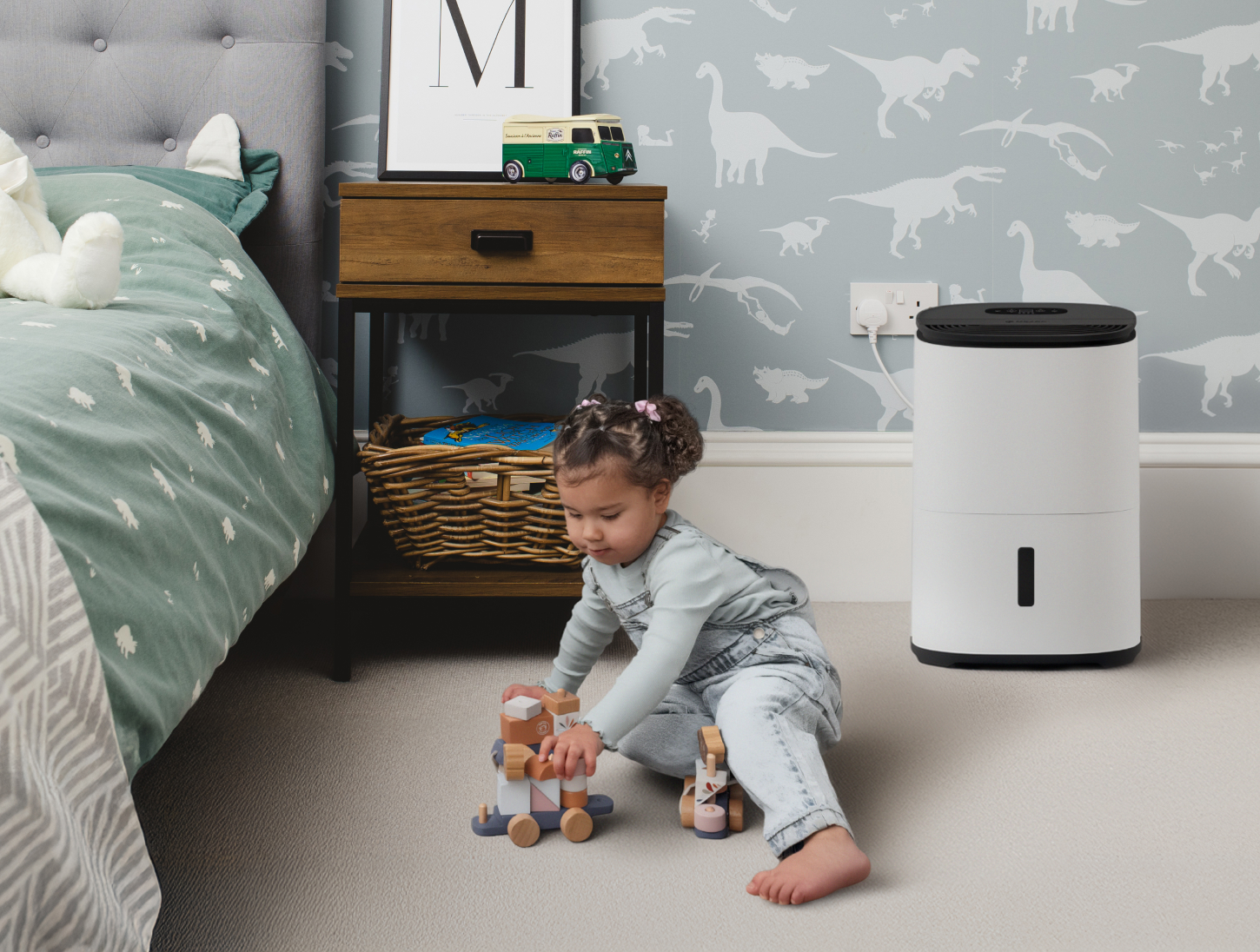
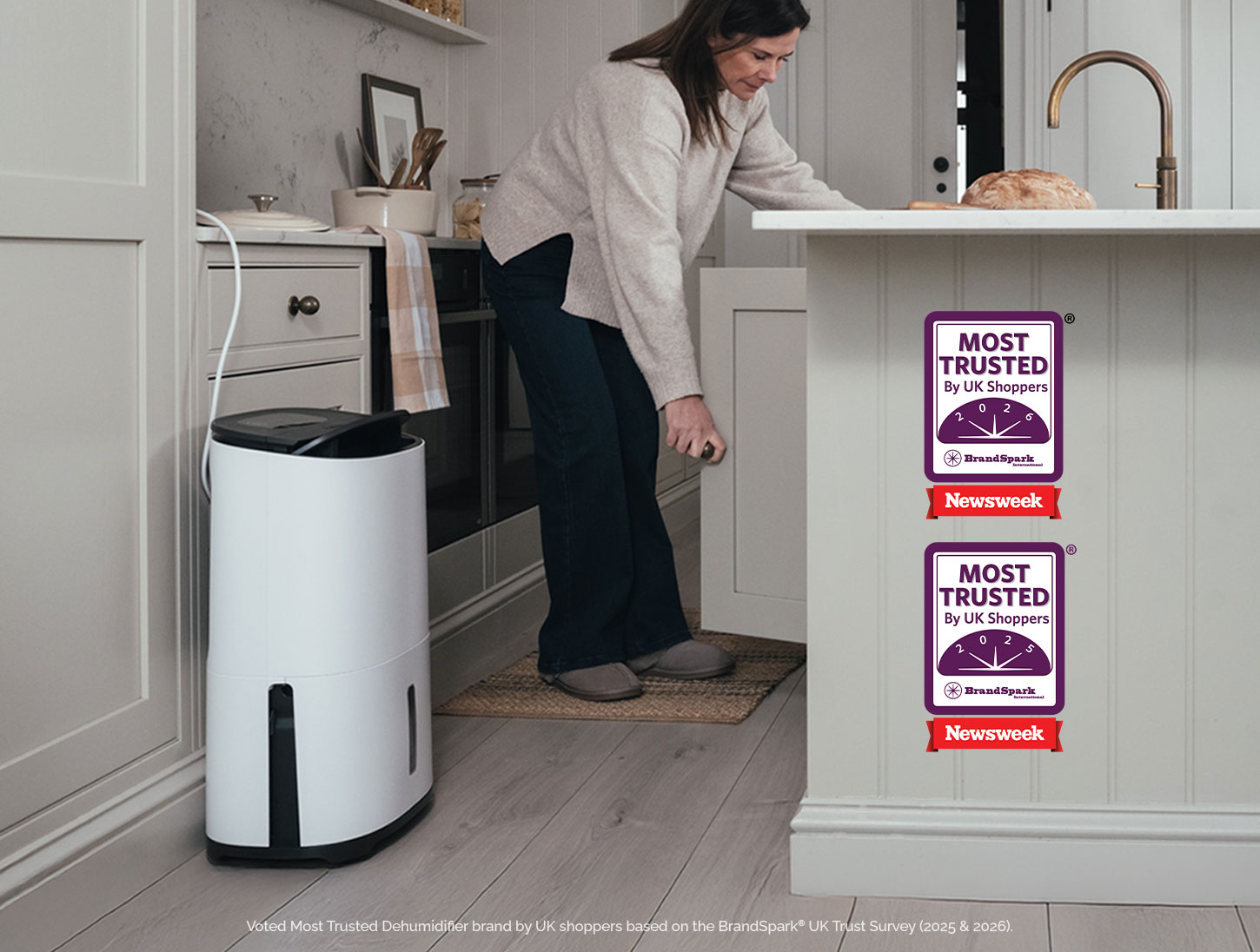
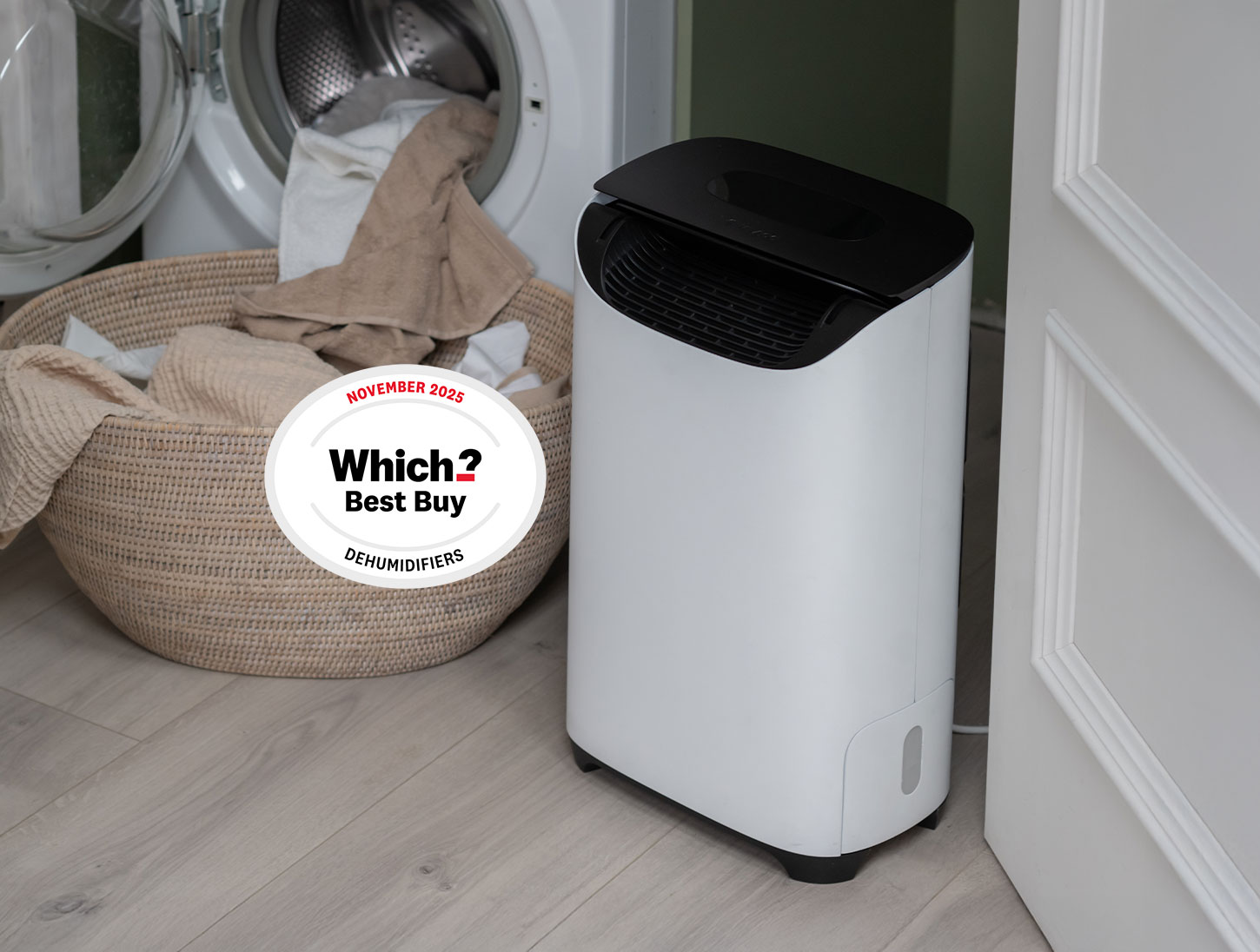
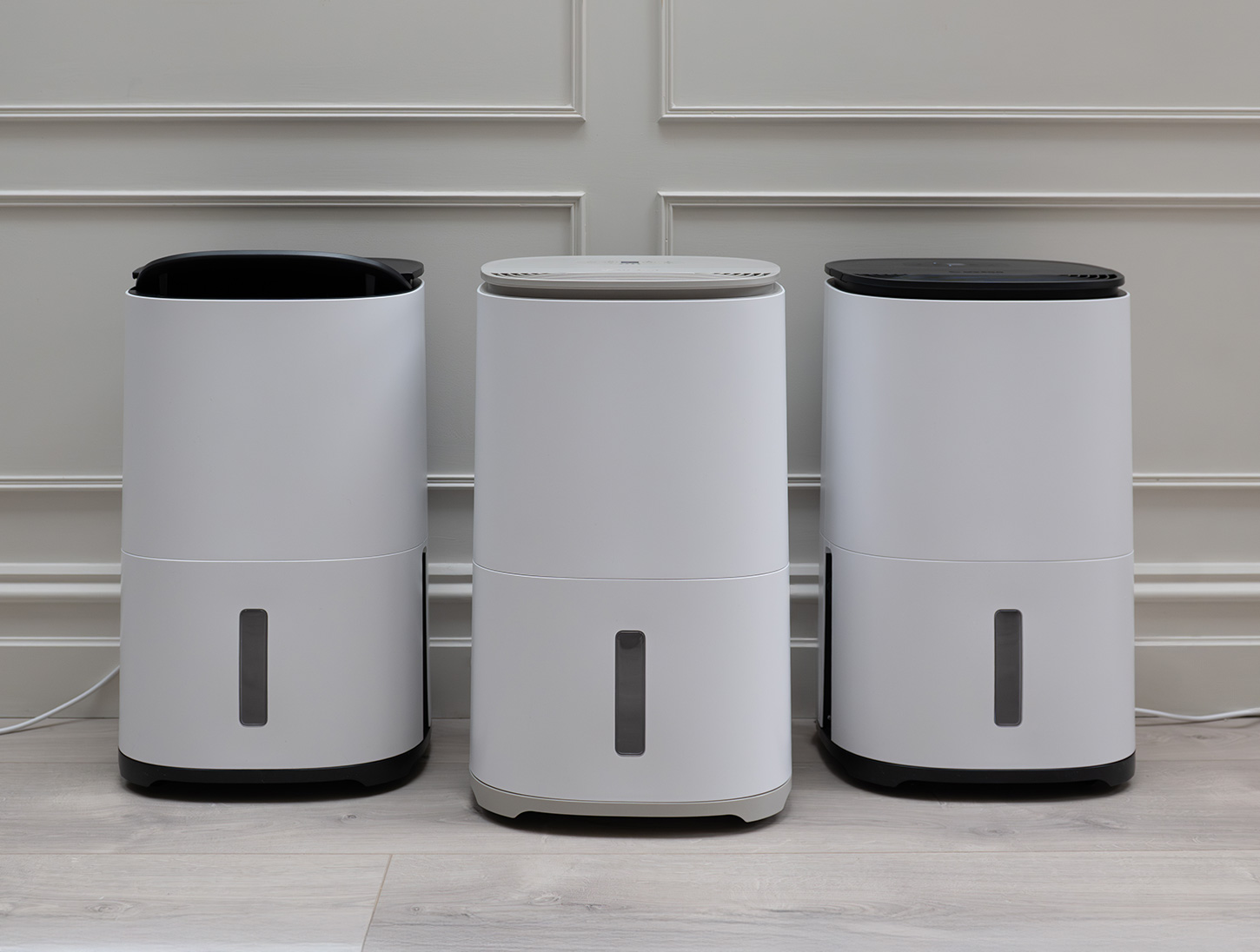
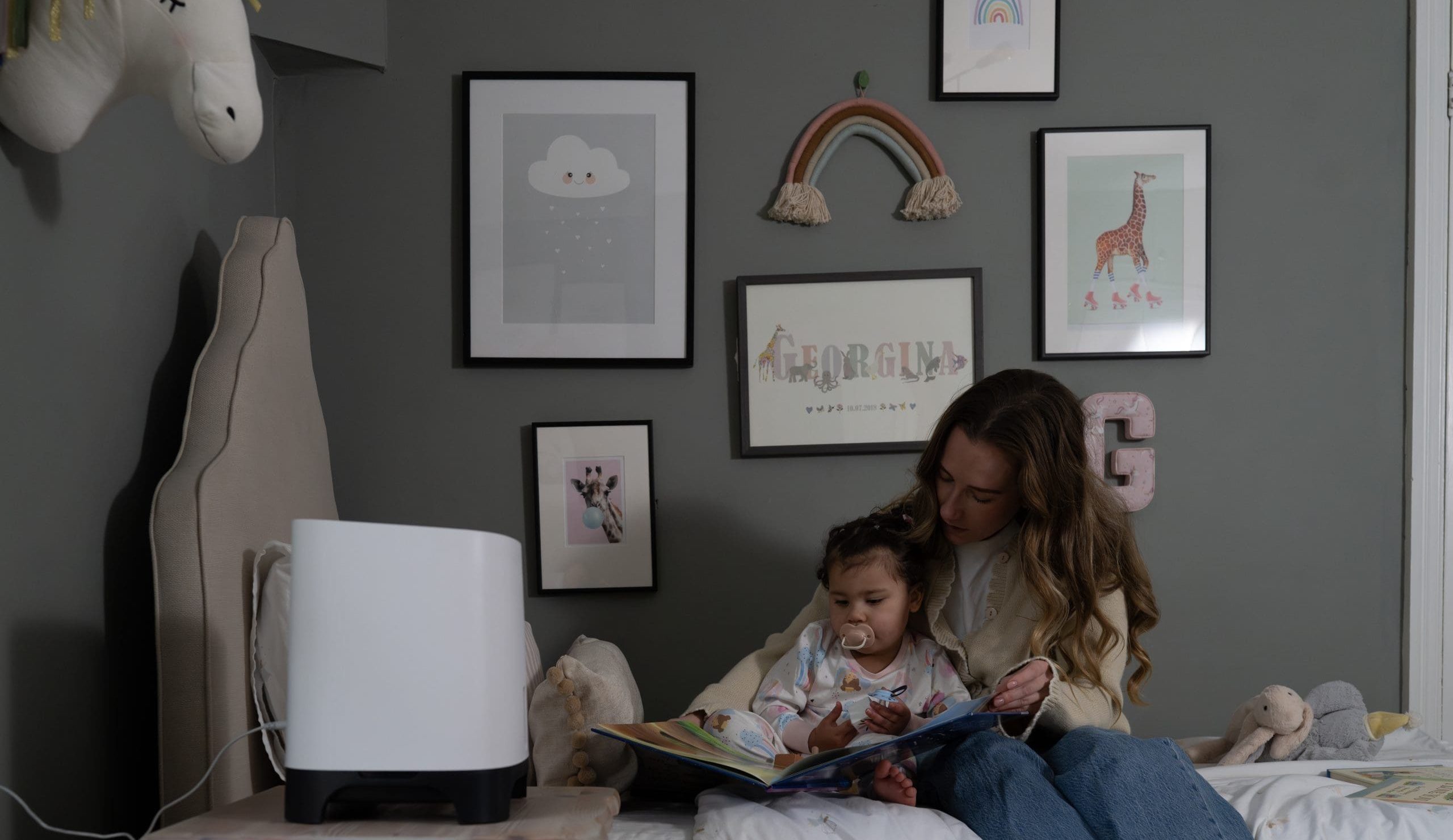

39 responses
Hi, I have a 24 feet by 10 feet wooden garage which has insulated walls and really small slot type size windows down one side. I will shortly be having delivered a classic american car from USA and am thinking about a dehumidifier for the colder months here is Somerset. Which machine would you advise as being the most efficient and cheapest to run where I can set to come on in late evening to early morning? Thanks
Andy,
Thank you for your enquiry. Even though the garage is insulated, without heating it will still get quite cold in the winter. In those conditions, we’d recommend one of our DD8L models. These are desiccant dehumidifiers, which perform consistently in colder temperatures as well as when it warms up again, making them the go-to choice for garages.
They’re as efficient as can be for desiccant models, models like the Zambezi come with timer on and off whereas the others only timer off options, with smart humidity, it will decide when it needs to run and when it can enter standby, ensuring your humidity levels are always within your set target.
Just make sure there aren’t any large open eaves or significant ventilation gaps, as that would allow new moisture in and the dry air escape!
Hope that helps you choose the right model.
Omar@Meaco
Good morning. I am using a Meaco 20L Platinum compressor dehumidifier to dry out my loft which suffers from serious condensation during the winter months. Living in Scotland the temperatures regularly drop below freezing. Would I be better using a dessicant dehumidifier? What are the comparative hourly costs and for a fairly large loft what litre capacity would best suit my needs? Many thanks.
James,
Thank you for your enquiry. For drying out your loft, a compressor dehumidifier like your 20L Platinum is a good choice, as it works well down to around 10°C. However, if the temperatures in your loft regularly drop below freezing, a desiccant dehumidifier might be more effective as it operates well in temperatures as low as 1°C.
In terms of running costs, the 20L compressor dehumidifier costs approximately 5p per hour based on a rate of 24.50p/kWh. A desiccant dehumidifier on fan speed 1 would cost about 8-9p per hour, while fan speeds 2 and 3 would increase the cost to around 16p per hour.
It’s important to note that the loft cannot have open eaves. Open eaves can allow for external air to flow directly into the loft space, whilst the drier air from the dehumidifier is constantly escaping, which could undermine the effectiveness of your dehumidifier.
Hope that helps,
Omar@Meaco.
What is the daily cost to run a zambezi dd8L 24 hours a day on low fan setting?
Luke,
Thank you for your question regarding the running costs of the Zambezi DD8L dehumidifier.
Our technical overview tab on the product page does provide detailed information about the running costs per hour, and for the Zambezi, the estimated cost is approximately 9p per hour when using Fan Speed 1, based on an electricity cost of £0.25 per kWh.
To help answer your question, 9p per hour × 24 hours = £2.16 per day.
It’s important to note that the dehumidifier is designed to reach your desired humidity level and will automatically stop running once that target is achieved, rather than running continuously. This means it will not keep running constantly for 24 hours once the room has reached the desired humidity, helping to save on energy costs over time.
If you need further clarification or have additional questions, feel free to ask!
Kind regards,
Omar@Meaco.
Hi ,
I think you have a typo here
https://blog.meaco.com/cost-to-run-dehumidifier
that is confusing:
“For example, the MeacoDry Arete 20L uses 216 watts at a power consumption at 20°C and 60%rh. That’s 5p/hour based on 24.50p/kWh, and around 40p/hour if you run it for 8 hours a day.”
I suspect what is meant is “and around 40p per day if you run it for 8 hours a day”.
You might want to check that and either make a correction or explain the difference in running cost.
With thanks,
Andrew
Andrew,
Thank you for pointing that out, it is meant to say 40p for 8 hours! We will update the blog.
Kind regards,
Omar@Meaco.
Just purchaseed an Arete one 12L from argos, its insane the amount of water its taking out of the air!
My humidity is now hovering around 54% to 62% while its running (in smart mode its meant to cut off at 55% but doesnt seem to like doing that)
I would love to be able to turn it off between 1600 and 1900 (I am on octopus agile tarif so electric prices sky rocket in the peak time) but there is no timer function so I am wondering if I would be better off turning the device off when I go to work to counter that cost, or if that would allow the damp to get so bad the device would have to work extra hard when i get home….
Is it safe to have it on 24/7? or should i be turning it off while at work?
David,
Thank you for your purchase of the Arete One 12L!
Regarding the humidity levels, it’s normal for the unit to fluctuate a bit, especially in varying conditions. If it’s consistently above the target, you might want to check the placement.
As for running it 24/7, it is safe to do so, and many users find it effective for maintaining consistent humidity levels. However, if you’re concerned about energy costs during peak times, turning it off while you’re at work could help manage those expenses. Just keep in mind that it might take some time to bring the humidity back down when you turn it on again.
I hope that helps answer your questions,
Omar@Meaco.
I am on Octopus Agile tariff and would like to turn off my dehumidifier between 4pm and 7pm when rates are high. There is no programmer in my dehumidifier and the instructions state not to use a timer. Will you implement this feature in future products? Arete One owner
Paul,
Thank you for your question! Currently, our Arete One models do not have a built-in programmer, and as you mentioned, using a timer with the unit is not recommended. However, we do already offer a solution in our AreteTwo models, which are equipped with a built-in on and off timer feature that allows you to set specific operating times. This could be a great option for managing your energy use during high tariff periods, such as between 4pm and 7pm.
Feel free to reach out if you have any other questions or need further assistance!
Omar@Meaco.